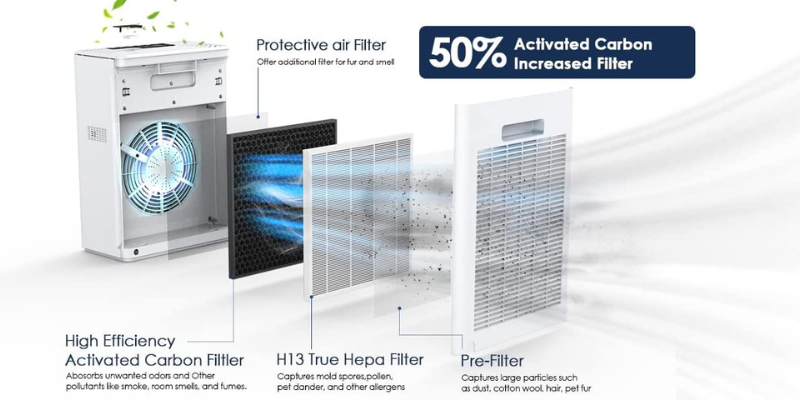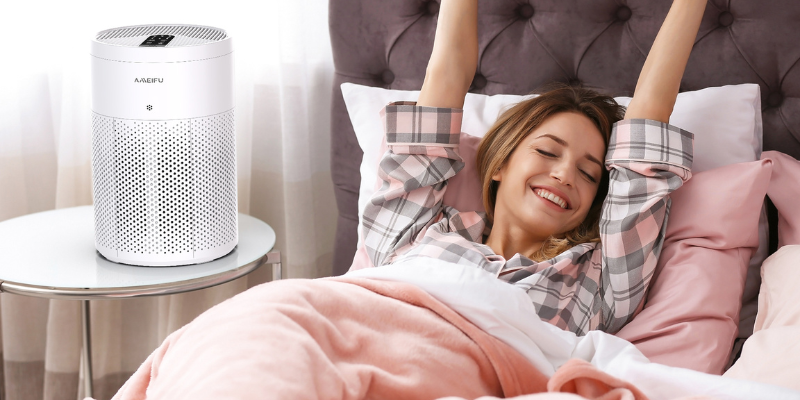Do you find yourself constantly dusting your home, only to see the same layer of particles settle back down just a few days later? You're not alone. Dust is a common household nuisance, and it can be especially problematic for individuals with allergies or respiratory issues. But what if there was a way to effectively remove dust particles from your indoor air and keep your home cleaner and healthier? In this article, we'll explore the question, "Do air purifiers help with dust?" and cover everything from how air purifiers work to the key features to look for when choosing one for your home.
Understanding Dust and its Effects
Dust is a common air pollutant that consists of a variety of particles, including pollen, mold spores, pet dander, and dust mites. When inhaled, these particles can trigger allergies, cause respiratory problems, and worsen existing conditions like asthma. Dust can also be an irritant to the eyes, nose, and throat, causing discomfort and potentially leading to infection.
How Air Purifiers Work?
Air purifiers work by removing contaminants from the air, improving indoor air quality. Most air purifiers use a combination of filters and fans to draw in and trap pollutants. The types of filters used in air purifiers can vary, but the most common are:
- HEPA filters: These are high-efficiency particulate air filters that can capture particles as small as 0.3 microns, including dust, pollen, and pet dander.
- Activated carbon filters: These filters are effective in removing odors and volatile organic compounds (VOCs) from the air.
- Pre-filters: These are the first line of defense in air purifiers and capture larger particles like pet hair and dust.

Do Air Purifiers Help with Dust?
The short answer is yes, air purifiers can help with dust. However, the effectiveness of air purifiers in removing dust depends on several factors, including the type of filter used and the size of the particles being captured.
HEPA filters are the most effective filters for capturing small particles like dust. In fact, they can capture up to 99.97% of particles as small as 0.3 microns. However, it's important to note that not all air purifiers with HEPA filters are created equal. Look for air purifiers that are certified by organizations like the Association of Home Appliance Manufacturers (AHAM) or the California Air Resources Board (CARB), which have strict standards for air purifier performance.
Activated carbon filters are also effective in removing dust, but they are more commonly used to remove odors and VOCs from the air. Pre-filters are less effective in capturing small particles like dust, but they can help extend the life of the more advanced filters by capturing larger particles before they reach the HEPA filter.

Other Factors to Consider
While air purifiers can be effective in removing dust, there are other factors to consider when choosing an air purifier for this purpose:
- Room size: Consider the size of the room where the air purifier will be used. Choose an air purifier that is suitable for the size of the room to ensure that it can effectively clean the air.
- Air exchange rate: The air exchange rate refers to the number of times per hour that the air purifier can circulate and clean the air in the room. Look for an air purifier with a high air exchange rate for optimal performance.
- Noise level: Consider the noise level of the air purifier, especially if it will be used in a bedroom or other quiet environment.
- Maintenance: Air purifiers require regular maintenance, including filter replacements and cleaning. Choose an air purifier with easy-to-replace filters and clear maintenance instructions.
Conclusion
Air purifiers can be effective in removing dust and improving indoor air quality. HEPA filters are the most effective filters for capturing small particles like dust, but it's important to choose an air purifier that is certified by reputable organizations to ensure its performance. Other factors to consider when choosing an air purifier for dust removal include room size, air exchange rate, noise level, and maintenance requirements.
If you're considering purchasing an air purifier for dust removal, do your research and choose one that meets your specific needs. A high-quality air purifier can help you breathe easier and enjoy cleaner, healthier indoor air.










